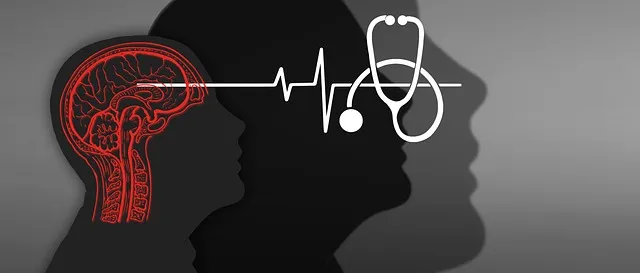Public awareness campaigns, such as "Lafayette does Kaiser cover mental health," play a crucial role in shaping societal attitudes towards mental well-being. Led by organizations and community leaders, these initiatives educate, inspire, and motivate individuals to take proactive steps for their mental health. By simplifying complex topics and providing practical tools like journaling, mindfulness, and confidence-boosting exercises, they bridge the gap between knowledge and action, fostering open dialogue and encouraging effective mental health management. Lafayette and Kaiser's collaborative efforts serve as a compelling case study, showcasing the positive impact of community partnerships on regional well-being through innovative programs that extend beyond traditional therapy, including Social Skills Training and Mind Over Matter Principles. Effective campaigns require strategic approaches tailored to specific audiences and diverse media platforms, leveraging storytelling to connect with varied communities, as demonstrated by Lafayette's Kaiser coverage.
Public awareness campaigns are powerful tools that shape societal perceptions and drive change. This article explores their significance, with a focus on mental health initiatives. We delve into the successful collaboration between Lafayette and Kaiser, showcasing how joint efforts can address critical issues. Furthermore, it offers strategic insights for developing and implementing effective campaigns, highlighting best practices to engage audiences and create lasting impact, particularly in the realm of mental healthcare.
- Understanding Public Awareness Campaigns: Their Role and Impact in Society
- Mental Health Initiatives: A Case Study of Lafayette and Kaiser's Collaboration
- Strategies for Effective Campaign Development and Implementation
Understanding Public Awareness Campaigns: Their Role and Impact in Society

Public awareness campaigns play a pivotal role in shaping societal perceptions and behaviors, particularly regarding pressing issues like mental health. These initiatives, often spearheaded by organizations, government bodies, or community leaders, serve as powerful tools to educate, inspire, and motivate individuals to take action. By effectively communicating complex topics, they bridge the gap between information and action, empowering people to make informed decisions about their well-being. For instance, campaigns like “Lafayette does Kaiser cover mental health” aim to dispel myths, promote understanding, and encourage seeking professional help when needed.
In today’s fast-paced world, where stress and anxiety are prevalent, integrating practices such as mental wellness journaling, mindfulness meditation, and confidence-boosting exercises into these campaigns can significantly enhance their impact. These strategies not only raise awareness but also provide practical tools for individuals to navigate challenges, fostering a culture of open dialogue and proactive mental health management.
Mental Health Initiatives: A Case Study of Lafayette and Kaiser's Collaboration

Lafayette and Kaiser’s collaboration on mental health initiatives serves as a compelling case study, demonstrating how community partnerships can significantly impact well-being. By joining forces, these organizations aimed to address the growing concerns surrounding mental health awareness and accessibility in their region. Their approach focused on comprehensive programs that go beyond traditional therapy models.
Through this partnership, Lafayette and Kaiser introduced innovative solutions, such as Social Skills Training sessions, which foster connections and support networks among individuals struggling with social anxiety or isolation. Additionally, they promoted Mind Over Matter Principles, empowering individuals to develop resilience through cognitive reframing and mindfulness practices. These initiatives showcase a holistic strategy that caters to diverse mental health needs within the community, setting a benchmark for future collaborations aimed at enhancing overall well-being.
Strategies for Effective Campaign Development and Implementation

Creating effective public awareness campaigns requires a strategic approach to ensure impact and reach. One key strategy is tailoring messages for specific audiences, addressing mental health concerns like stress reduction methods and trauma support services, as seen in Lafayette’s Kaiser coverage. Understanding cultural nuances and individual needs enables campaigners to connect with diverse communities.
Additionally, integrating storytelling and personal narratives can humanize complex issues, fostering empathy and engagement. Leveraging various media platforms, from social media to community events, ensures that messages resonate with folks in their daily lives. This multi-channel approach amplifies the campaign’s reach, making it easier for people to access information and resources related to mental health, just as Lafayette’s Kaiser initiatives demonstrate.
Public awareness campaigns, such as those initiated by Lafayette and Kaiser, play a pivotal role in shaping societal attitudes and behaviors regarding critical issues like mental health. By leveraging innovative strategies and collaborative efforts, these campaigns not only raise awareness but also foster meaningful change. The case study of Lafayette and Kaiser’s partnership demonstrates the power of public-private collaborations to effectively address complex challenges, ensuring that resources are optimized and messages resonate with diverse audiences. To build on this success, future campaign development should focus on leveraging digital platforms, integrating personal narratives, and maintaining consistent messaging across various touchpoints. Through these approaches, we can enhance public understanding and support for mental health initiatives, ultimately leading to a more compassionate and inclusive society.






